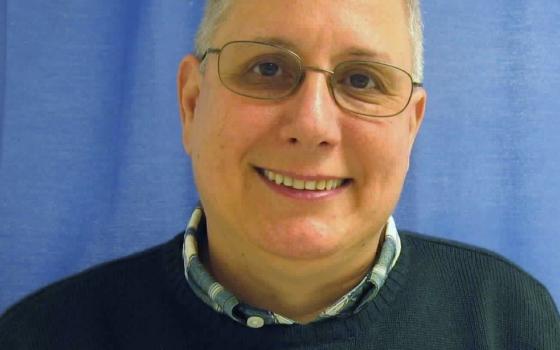Sister of Mercy Sr. Barb Supanich has been a doctor for 32 years, but it’s only been in the last 23 that she’s been focused on the chronically ill and dying. Supanich says it was after working as a family physician in small-town Michigan – where her patients ranged from the newborn to the very old – that she first thought about a shift in her ministry. In 1992, she joined the faculty at Michigan State University’s family medicine department, teaching and writing about hospice and palliative care.
In 2005, she left the university to become the first-ever hospice and palliative care fellow at the Mayo Clinic in Jacksonville, Florida. Today Supanich is a hospice physician in Palm Harbor, Florida, and an unofficial spokeswoman for the importance of end-of-life healthcare. She spoke to Global Sisters Report about death, dying and just why she thinks hospice care is so important.
You didn’t start out as a hospice physician. What was it about hospice and palliative care that initially interested you?
I think what attracted me was, throughout my medical studies, I never really saw death as an enemy – which I think physicians and other healthcare professionals do sometimes – but as a natural part of life. And I’m sure that’s because of my Catholic school education, as well as meeting Sisters of Mercy and seeing how fully they lived their lives when they were facing their diminishing years. Not that death isn’t hard, but I never considered it fearful or wrong in some way. It's just part of our evolution as human beings and spiritual beings.
So, I guess I just had this really positive experience all the way through and said, ‘Hey, I want to be a part of that.’ I want to be a part of being a positive influence in people's lives – whether it's the person dying or their family members. This is a normal part of the human journey and, yes, of course, there are painful aspects, but not because it's evil or bad in some way. So, if it’s going to be painful, let's help you through this, let's help you make this as positive and supportive as it can be, whether the ‘you’ is the patient or ‘you’ is a close friend or a family member.
In what ways do you think being a woman religious has affected your work?
I think in many profound ways, actually. Being a Sister of Mercy – it's in our name. Mercy means compassion; mercy means walking with somebody from the perspective of understanding their experience. And so, as a Sister of Mercy, I see myself as a companion with patients who are facing their own dying process. And I think it's an extension of Jesus’ healing ministry.
It’s a kind of holy moment many, many times throughout the day – knowing somehow I am an extension of the ministry of Jesus. I mean, you experience that high point every day, every moment, and you realize it's a gift. Yes, I did a lot of study, but it's not really me. It's truly a gift from the Holy Spirit.
What one thing do you wish people knew about death and dying?
I guess I'd want to say that death is a natural part of our human journey, and we should look at that part of our life as positively as we do other parts of our life. And the way to help us make it a positive experience is to be sure we involve hospice and palliative care in our care at that part of our life and that we have conversations with our friends and family as well as the professionals caring for us, so that we get the best care possible at that part of life as well as we do earlier in our life. There's a book called The Best Care Possible by a hospice physician name Ira Byock – I would recommend it as a guide to understanding the current healthcare system and current choices, to understanding why hospice care and palliative care are so vital in transforming the healthcare system to be more positively focused on the patient experience and patient choices. It’s a very helpful book for people sorting through the complexities of healthcare.
And I would also tell people to not be afraid of that part of the journey and to know that if we are fearing it, that there are professionals in hospice care – nurses and social workers and chaplains and volunteers and physicians – who want to help you with that and help you achieve your goals at that part of your life.
[Dawn Cherie Araujo is staff reporter for Global Sisters Report based in Kansas City, Missouri. Follow her on Twitter @Dawn_Cherie.]

